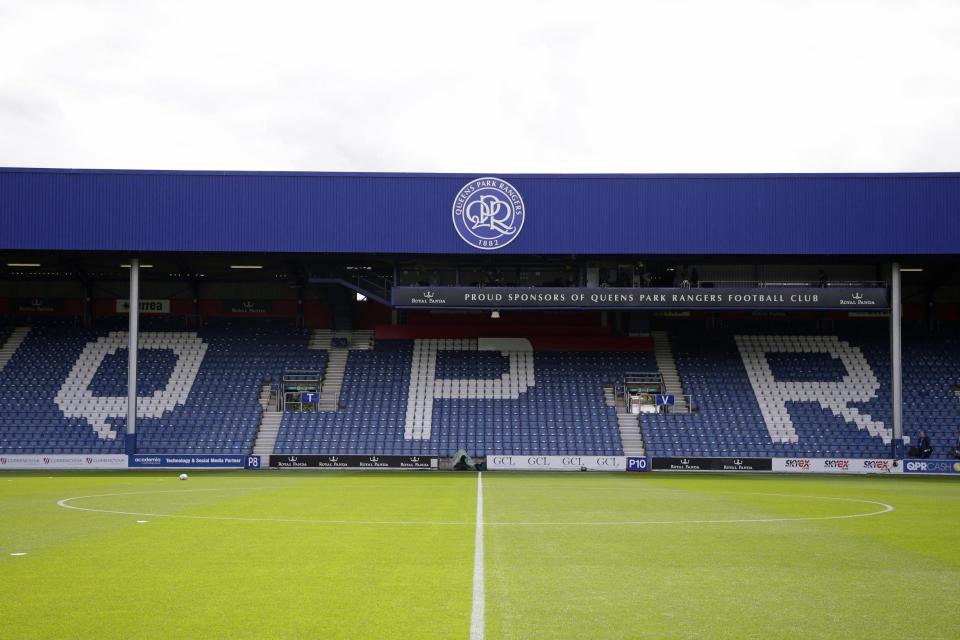Les Ferdinand fears QPR are at risk despite years of hard work financially stabilising club

The financial impact of coronavirus on English football is yet to be fully realised, but Les Ferdinand is already fearful that years of hard work are at risk of being undone.
The 53-year-old rejoined QPR in 2014, initially as head of football operations before becoming director of football, tasked with the responsibility of helping to keep the club competitive while driving down costs.
Finances at the club had spiralled out of control so much that QPR eventually agreed a £42million settlement with the EFL — including a £17million fine — in relation to a breach of spending limits during their promotion season from the Championship in 2013-14.
QPR had a wage bill at the time of around £75m, representing 195 per cent of their turnover of £38.6m, but Ferdinand has since helped drive down debts, while bringing that total salary outlay to less than £20m.
They have been restricted in the transfer market and left vulnerable as a result — the club powerless in January as Nahki Wells was recalled from a loan spell by Burnley and sold to Bristol City for £5m — but they still went into the break with outside hopes of a play-off spot, sitting in 13th place in the Championship, six points adrift of sixth-placed Preston.
That was, of course, until the spread of Covid-19 changed everything. An announcement confirming the initial suspension of English football until April 3 – since extended to the end of next month – came shortly after 11am on Friday 13th. By that stage preparations were well underway at Loftus Road for QPR’s derby clash with Fulham just over 24 hours later.
“We had done all the catering for the game,” Ferdinand told Standard Sport. “There was a lot of food. We gave it to food banks, but things would have gone to waste. People would be out of pocket because they can’t work. There are a lot of people in limbo.
“Could the work we’ve done here disappear? 100 per cent. The problem is, we are not the only club sitting in this situation.”
Various lower league clubs have warned about the financial implications of an extended period without matchday income, a vital revenue stream for teams outside of the Premier League not able to rely on lavish television provisions.
Talks are continuing this week over possible timeframes in which the 2019-20 season could finish but it appears almost inevitable that games will resume behind closed doors.
The EFL have offered clubs throughout its leagues the chance to apply for part of a £50m short-term relief fund, yet a prolonged absence of fans through the gates will ensure financial pressures remain at all levels.
Premier League clubs may have to repay broadcast revenue totalling more than £760m if the games are not completed and the lower leagues remain hopeful the Government will step in to help, a move Ferdinand supports.
“Everyone is feeling the pinch, so it is about what we can do as a football family to compensate everybody and not just the big boys,” he said. “Clubs are going to need help. We need the revenue coming through the door, we need the matchday revenue. We’re not right on the edge, but we are quite close to it, like everybody else. It’s going to be a pretty hefty figure for us.

“Anyone with any sense of morality in terms of the way our football is would say the season has to finish. Look at Liverpool, Sheffield United – too many clubs have achieved too much already for it to count for nothing. But Government have to intervene.”
Ferdinand is feeling the repercussions of Covid-19 on a personal level, too. Face-to-face meetings are the lifeblood of a director of football but these days are inevitably non-existent as social distancing measures take priority.
Earlier this month, the 53-year-old was unable to play a full part in supporting FA-backed research into the link between heading footballs and dementia, which led in February to the banning of heading in training for children of primary school age.
“I put myself up for this cognitive test for heading just before the lockdown,” he said. “I was supposed to go to the hospital, but instead I spent half an hour on the phone talking to them about part of it. I’m not able to sit in front of agents, too. We’ve never seen anything like this.”
Read more
Crystal Palace approach for QPR star Eberechi Eze confirmed
QPR boss Warburton: Declaring season null and void would be ludicrous

